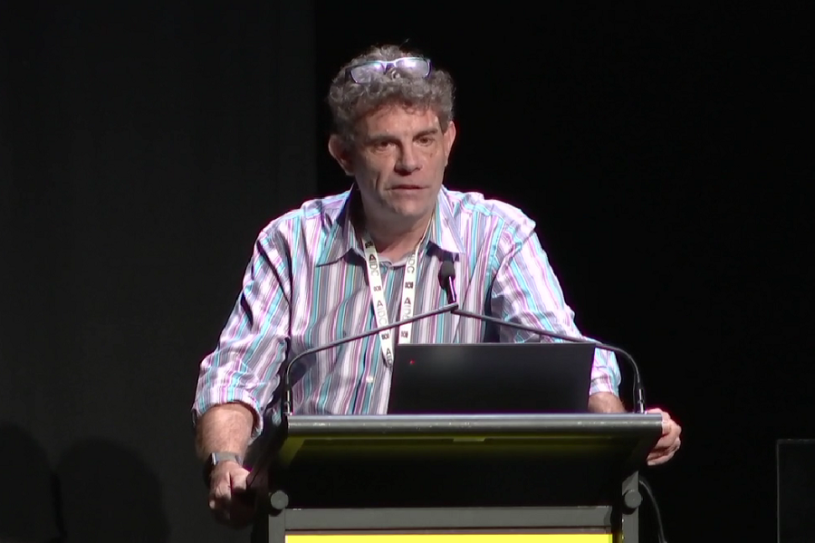In a climate of change, Screen Australia’s documentary department will attempt to provide stability for producers, announcing only a slight change to its funding programs at the Australian International Documentary Conference (AIDC) on Monday.
Head of documentary Alex West and CEO Graeme Mason took to the stage to outline the direction of the agency’s support, while also introducing department members Cieron Cody, Sally Chesher, Daniella Ortega, and Jeni McMahon.
There were also contributions from Lee Naimo and Elise Adams from the online department, and head of Indigenous Angela Bates.
West, who took over from Bernadine Lim in the middle of last year, told IF in January that any announced tweaks to the funding programs would be about providing simplicity for the sector following the disruption of COVID and the looming threat of changes to the Producer Offset.
On Monday, he signalled his intention to keep the development, producer, and commissioned programs mostly as they were, albeit with a streamlined one-stage application process for the producer program, which previously required a two-step submission.
“We’re still trying to understand the COVID-not-being-over environment and what that means, as well as the arrival of the SVODs with a new set of deal parameters and a new forms of marketing,” he said.
“It’s not my temperament to smash the system, particularly after two years of the most intense change in lived experience I think we’ve ever gone through collectively.
“My thought here, although not a spectacular announcement of new changes, is to provide stability and to look, see and observe, talk, and dialogue about what the current conditions are and where they are going, particularly because the legislative changes are now enacted and are imminent in terms of guidelines.”
Prior to the onset of COVID, there had been plans to revise the documentary funding programs, as well as a proposal to replace the Producer Equity Program (PEP), which provides a direct payment of funds to producers of eligible low-budget Australian documentaries, in favour of a creatively-assessed completion fund.
West said that while the department “loved PEP”, there were “relatively minor” issues with the program that the department had looked into.
“Daniella and I have done an analysis and we were a bit concerned about an issue the definition of documentary in the space and that we were seeing completed projects and brand-funded entertainment,” he said.
“We’ve closed whatever loops there were on that and we feel that right now, PEP is in working order.”
During his presentation, West also outlined the criteria Screen Australia used for funding, which include creative strength, cultural value, market viability of the project, team, pathway to audience, and diversity of slate.
He said the mix of the team involved was also important in identifying opportunities for emerging industry members.
“We are here to help have discussions about how that best work, but I believe we’re all in that together and that we keep our sector and industry healthy by finding ways to bring on the next generation of practitioners. I think its particularly important for those that are established to do that,” he said.
Both West and Mason used the session to emphasise the importance of factual storytelling in the current environment, while also paying tribute to the work that had been done in the past couple of years.
The former said there had never been a more vital time for the sector.
“Information used to be oil and gas and water, but information and facts are contested resources in this world, which is why it’s absolutely central that, together, we try to find pathways where information with veracity and engagement for audiences can actually do the work we do, which for me is change work, however and at what scale that means,” he said.
“This is why our screens evolve and as technology and form evolves, it’s really important for us to be in the space.”
In his introduction, Mason reminded producers that Screen Australia “had their best interests at heart” and said he wanted “to keep the team spirit going”.
“On our side, what we’re very keen to think about with you is the great stories you’ve got that you want to tell in factual and documentary, which are more important now than ever because news and journalism is under such threat,” he said.
“Particularly the ability to get stories that shape us and change us, inform us and educate us is moving more and more into your world, so we’ve got to really think about that.”


